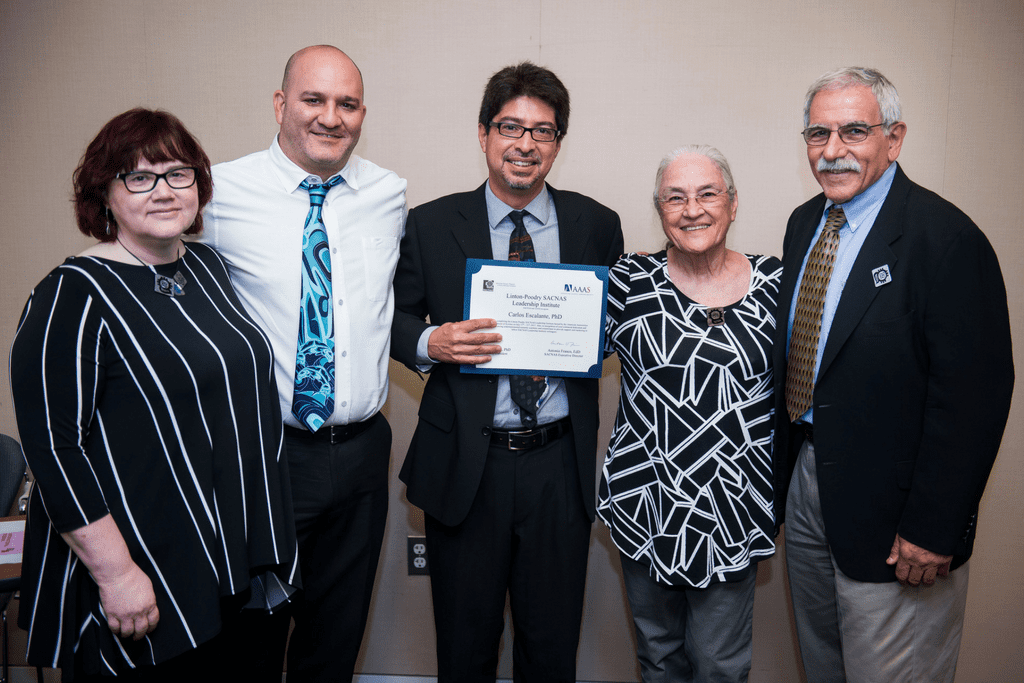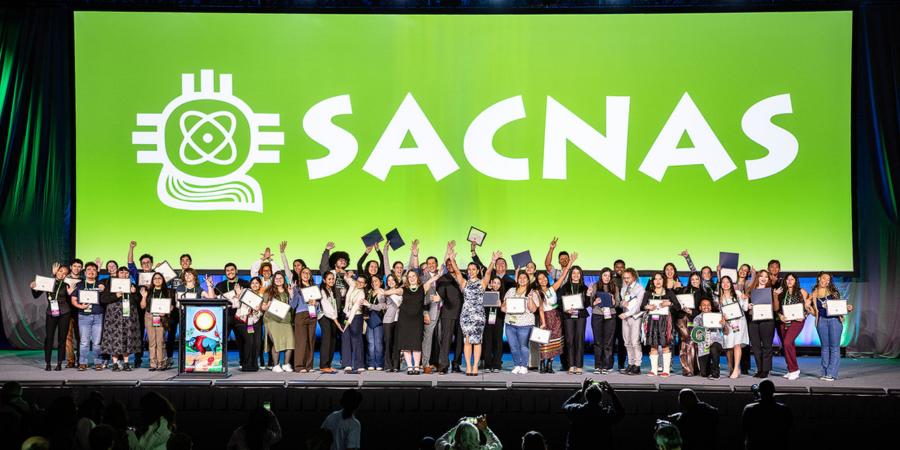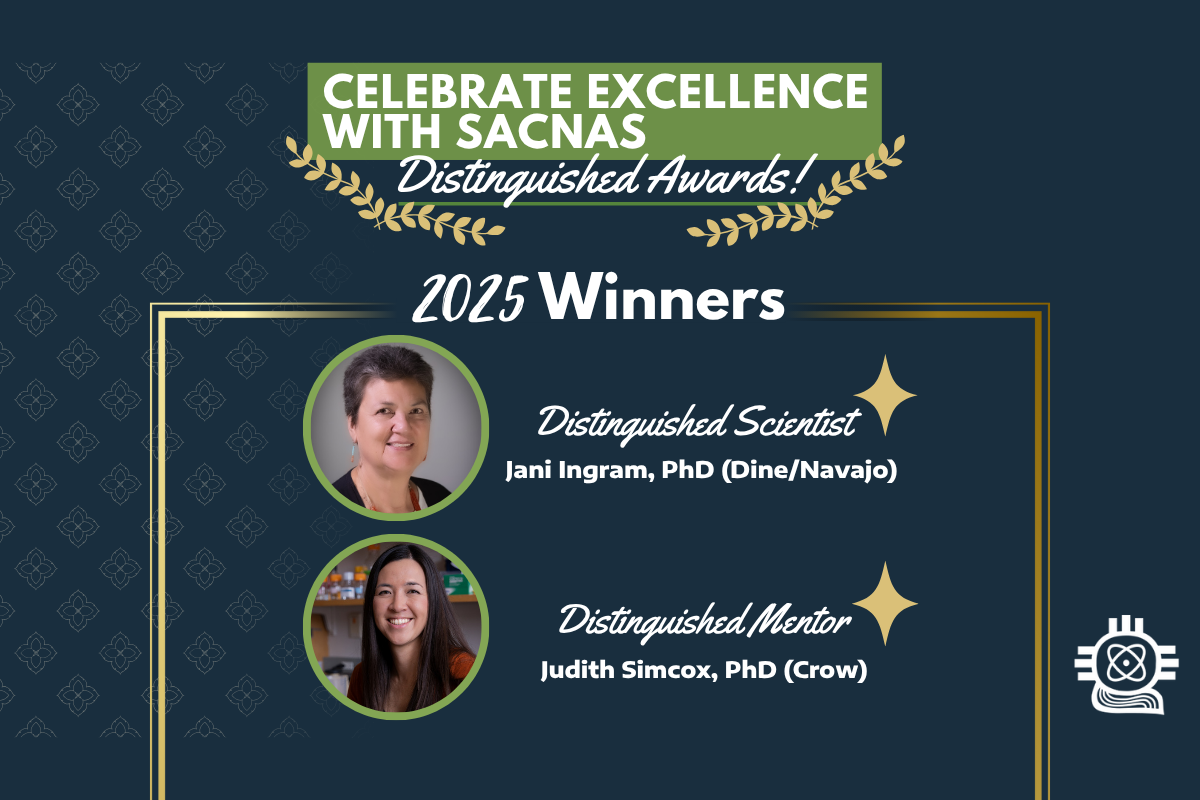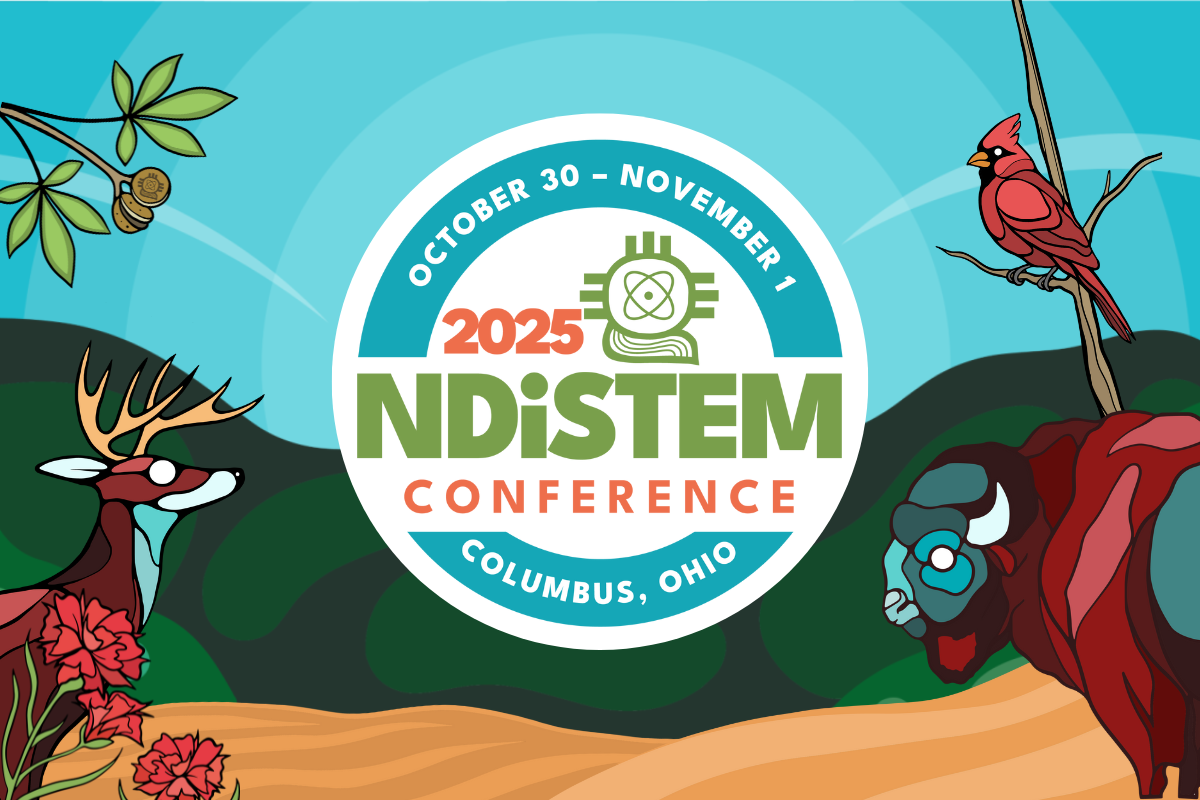More than 26 Hispanic scientists and PhDs convened this week in Washington to discuss how to shed the anonymity of the lab to become field leaders in science, technology, engineering, and math.
The scientists concluded today a leadership program organized by the Society for Advancement of Chicanos/Hispanics & Native Americans in Science (SACNAS), an organization dedicated to promoting the advancement of Hispanics and Native Americans in science.
Through small group discussions the program seeks to equip scientists with important tools to shape their leadership in investigative fields, while inspiring young Hispanics or Native Americans looking to break into scientific study.
One of the participants in Carlos Escalante, originally from Acapulco (Mexico), a Virginia Commonwealth University professor for the last seven years who is currently investigating how viruses can help cure genetic diseases, such as hemophilia which keeps a person’s from coagulating properly.
Escalante specifically studies how viruses can modify and replace non-working proteins, which would then allow the body to function correctly, curing it from the genetic disease.
During a break, the scientist spoke to Efe about his experience with the program. “This is an incredible opportunity, which provides us with the tools to develop our careers, be better leaders, and have a larger impact on our communities,” he said.
One of the program’s themes is “from labs to leadership,” an idea that Escalante relates to as the possibility to serve as an “example” to younger generations.
“When we conduct research as professors, we are training newer generations. From our vantage point we can help and inspire low-income minority youth. We can tell them: ‘look, see, you can do this, if I am here, you can be here, too,’” Escalante explained.
This scientist used the example of a student from his university who didn’t have much research experience, but the will to learn. He was accepted into a scientific project to purify proteins and within two months was able to develop a thorough scientific method.
“He learned how we do science in the lab, going through the process of inquiring and seeing how through questioning you can reach answers, and once you have your results you can modify your thought process to develop new ideas,” Escalante said.
“Teaching them these tool to identify a problem, how to examine different ways of addressing it; that’s what I think is most important,” he added.
Escalante also talked about President Donald Trump’s policies and “dramatic cuts” to science, which the president included in his FY2018 budget to be approved by Congress.
In his budget, Trump asked to increase military spending in exchange for cuts to science agencies, including NASA, National Institutes of Health, and the EPA, in charge of analyzing climate change and public health policies.
“Many of the programs on the chopping block help minorities enter the fields of math, science, and technology. These programs will be dramatically affected and this is a tremendous problem,” Escalante said.
SACNAS, the organization that sponsors the leadership program, participated in the March for Science, a worldwide protest that was held in direct response to Trump’s budget cuts in more than 500 U.S. cities and across the globe.
With this cohort, the leadership seminar has trained more than 239 scientists and professionals over the past several years to become the future leaders of science-driven organizations in the public and private sectors. EFE
Read the story in Spanish on El Pregonero.
View the #LPSLI17 Facebook photo album.
Meet the #LPSLI17 Cohort.
Learn more about SACNAS Leadership Programs.



